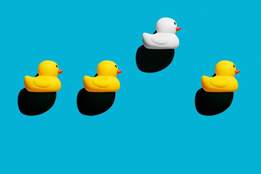-
- To save this word, you'll need to log in.
could
auxiliary verb
kəd,
ˈku̇d 
past tense of can
—used in auxiliary function in the past
We found we could go.
, in the past conditionalWe said we would go if we could.
, and as an alternative to can suggesting less force or certainty or as a polite form in the presentIf you could come, we would be pleased.
Examples of could in a Sentence
Recent Examples on the Web
Thousands of women could receive additional benefits if the Legislature passes the bill.
— James Brooks, Anchorage Daily News, 5 Feb. 2023
The Natural History Museum took possession of the animal's remains, prompting swift condemnation by tribal leaders who feared P-22′s body could be taxidermized and put on display.
—
James Brooks, Anchorage Daily News, 5 Feb. 2023
The Natural History Museum took possession of the animal's remains, prompting swift condemnation by tribal leaders who feared P-22′s body could be taxidermized and put on display.
— Stefanie Dazio, ajc, 5 Feb. 2023
Domestically, President Joe Biden hosted Speaker Kevin McCarthy at the White House to discuss a possible deal on the debt ceiling; experts warn delaying an increase in the debt limit could spell economic disaster.
—
Stefanie Dazio, ajc, 5 Feb. 2023
Domestically, President Joe Biden hosted Speaker Kevin McCarthy at the White House to discuss a possible deal on the debt ceiling; experts warn delaying an increase in the debt limit could spell economic disaster.
— Phillip M. Bailey, USA TODAY, 5 Feb. 2023
That could put the property on track to surpass numbers for 2022, its best year since opening in 2017.
—
Phillip M. Bailey, USA TODAY, 5 Feb. 2023
That could put the property on track to surpass numbers for 2022, its best year since opening in 2017.
— Blane Bachelor, CNN, 4 Feb. 2023
See all Example Sentences for could
Blane Bachelor, CNN, 4 Feb. 2023
See all Example Sentences for could 

Examples are automatically compiled from online sources to
show current usage.
Read More
Opinions expressed in the examples do not represent those of Merriam-Webster or its editors.
Send us feedback.
 James Brooks, Anchorage Daily News, 5 Feb. 2023
The Natural History Museum took possession of the animal's remains, prompting swift condemnation by tribal leaders who feared P-22′s body could be taxidermized and put on display.
—
James Brooks, Anchorage Daily News, 5 Feb. 2023
The Natural History Museum took possession of the animal's remains, prompting swift condemnation by tribal leaders who feared P-22′s body could be taxidermized and put on display.
— Stefanie Dazio, ajc, 5 Feb. 2023
Domestically, President Joe Biden hosted Speaker Kevin McCarthy at the White House to discuss a possible deal on the debt ceiling; experts warn delaying an increase in the debt limit could spell economic disaster.
—
Stefanie Dazio, ajc, 5 Feb. 2023
Domestically, President Joe Biden hosted Speaker Kevin McCarthy at the White House to discuss a possible deal on the debt ceiling; experts warn delaying an increase in the debt limit could spell economic disaster.
— Phillip M. Bailey, USA TODAY, 5 Feb. 2023
That could put the property on track to surpass numbers for 2022, its best year since opening in 2017.
—
Phillip M. Bailey, USA TODAY, 5 Feb. 2023
That could put the property on track to surpass numbers for 2022, its best year since opening in 2017.
— Blane Bachelor, CNN, 4 Feb. 2023
See all Example Sentences for could
Blane Bachelor, CNN, 4 Feb. 2023
See all Example Sentences for could 

Word History
Etymology
Middle English couthe, coude, from Old English cūthe; akin to Old High German konda could
First Known Use
13th century, in the meaning defined above
Time Traveler
The first known use of could was
in the 13th century
Dictionary Entries Near could
Cite this Entry
“Could.” Merriam-Webster.com Dictionary, Merriam-Webster, https://www.merriam-webster.com/dictionary/could. Accessed 22 Jan. 2025.
More from Merriam-Webster on could
Nglish: Translation of could for Spanish Speakers
Britannica English: Translation of could for Arabic Speakers
Love words? Need even more definitions?
Merriam-Webster unabridged











Share